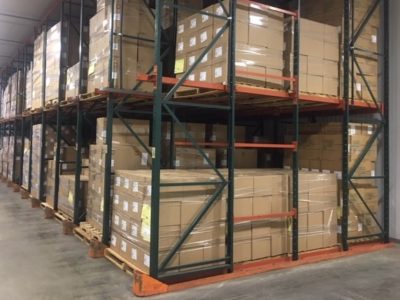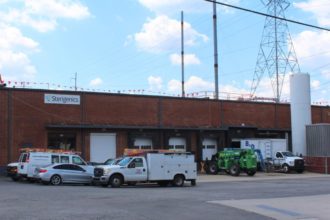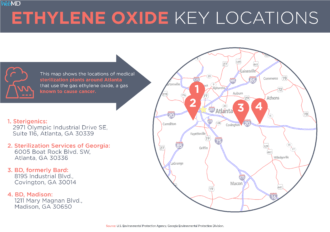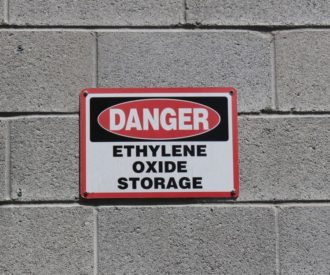Republicans in the Georgia House have revised an environmental regulatory bill to allow citizens more access to information on leaks or emissions of the toxic gas ethylene oxide.

The legislation, House Bill 927, requires companies to notify state regulators of any “unpermitted’’ release or leak of the chemical, which is used to sterilize medical equipment.
But the original version of the bill said the state Environmental Protection Division (EPD) would not be required to make this information public unless the leak amounted to 10 pounds a day or more.
After an outcry from citizens and some lawmakers, public reporting will now apply to all leaks of ethylene oxide. The new version of the legislation, incorporating that change, passed the House Natural Resources and Environment Committee on Thursday.
Releases of ethylene oxide from sterilizing facilities have triggered community protests in two areas of metro Atlanta in recent months.
“We are so grateful for all the effort to make sure we had full transparency for the public,’’ said Janet Rau, president of Stop Sterigenics Georgia. She said that if the legislation is ultimately approved by the General Assembly and Gov. Brian Kemp, “We will have the data as it comes to EPD.’’
The Stop Sterigenics group was formed after a report by WebMD and Georgia Health News identified three metro Atlanta census tracts in EPA data as having an elevated cancer risk from air pollution, largely due to ethylene oxide. Two of the tracts are in Fulton County, near a medical sterilization facility run by the company Sterigenics. The third is in Covington in Newton County, where the company BD operates a sterilizing plant.
The EPA classified the chemical as a cancer-causing substance in 2016. The Sterigenics facility has been closed since late August. Cobb County has demanded additional safety controls at the sterilizing plant.
Rep. Don Parsons (R-Marietta) drew criticism earlier this week for standing by the original version of the bill that contained the 10-pound threshold for public reporting. And a similar Senate bill this week cleared a committee with the same restriction on public access.

The Sterigenics facility, in Smyrna, just northwest of Atlanta, has had several unreported releases of the chemical in the past five years, according to the EPD. Each was less than 10 pounds, Sterigenics said in an email to an EPD official. The BD plant in Covington, east of Atlanta, had an eight-day ethylene oxide leak in September — about 7 pounds per day, or 54 pounds in all. BD reported the leak to the EPD.
As Parsons revealed the additional public access to data, he also told the House panel that ethylene oxide is used for many other products, and that medical sterilization is more vital than ever, amid the national public health crisis over the new coronavirus.
Rep. Erick Allen, a Smyrna Democrat, has pushed for broader public access to the data on leaks, as well as new requirements for air testing around facilities that sterilize medical supplies with ethylene oxide.
“I am glad to see that the governor and Rep. Parsons have decided to add the transparency piece of my bill back into the measure,’’ Allen said Thursday after the House panel vote. “Transparency is the bedrock of public trust, and in its original form, Rep. Parsons’ bill would have done nothing more than deepen that mistrust. It was the pressure from the community and our relentless advocacy that cause the sponsor to shift from explaining that the ‘plants should reopen’ and the public had no right to disclosure, to where we are now. This is a great first step.’’
He called on the House Natural Resources and Environment Committee chair, Rep. Lynn Smith (R-Newnan), to allow his other ethylene oxide legislation to be heard in the committee.

Allen has introduced proposals that would create a state study committee on ethylene oxide, and would tighten the regulation of “stack emissions’’ and “off-gassing’’ in warehouses and other buildings. Off-gassing refers to the emission of ethylene oxide gas from equipment sterilized with the chemical.
Recently a BD warehouse in Covington was reported to have high levels of ethylene oxide.
State Rep. Mary Frances Williams (D-Marietta) also had pushed for increased transparency over reporting of leaks of ethylene oxide.
“I am pleased to see the voices of concerned citizens were heard on this issue, and that the bill was strengthened to protect the health of Georgians and our environment,” she said.

